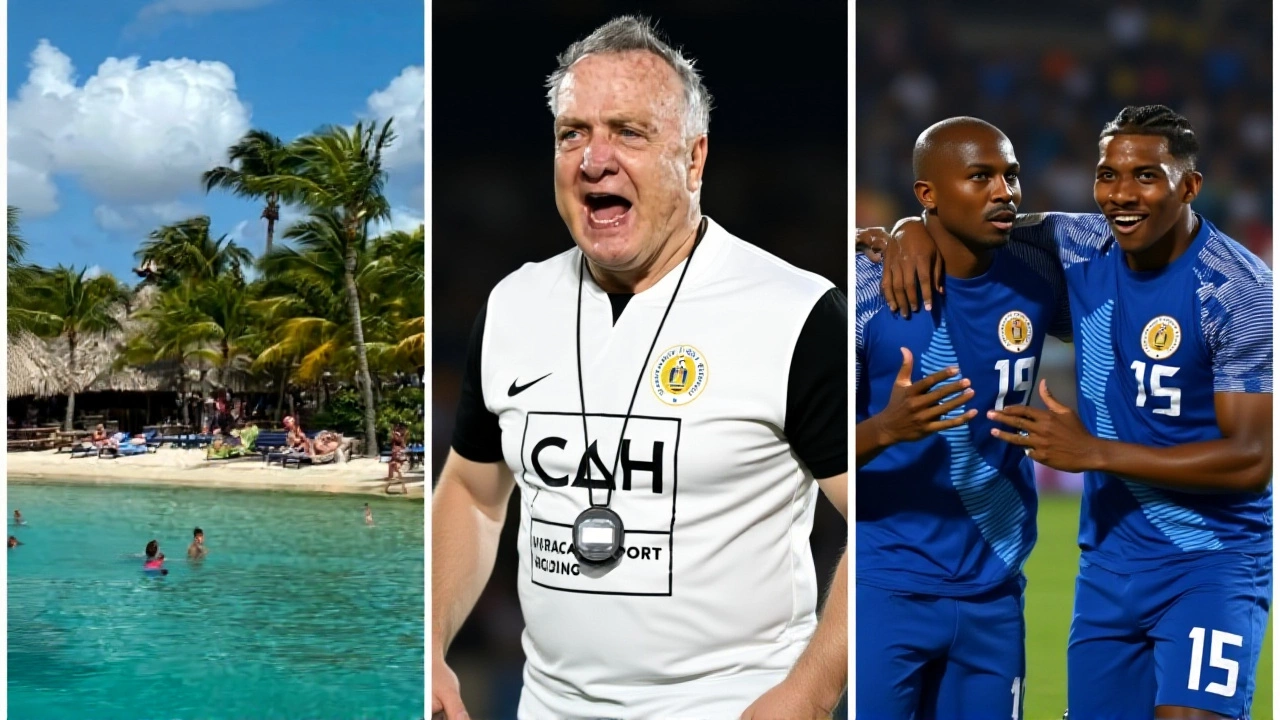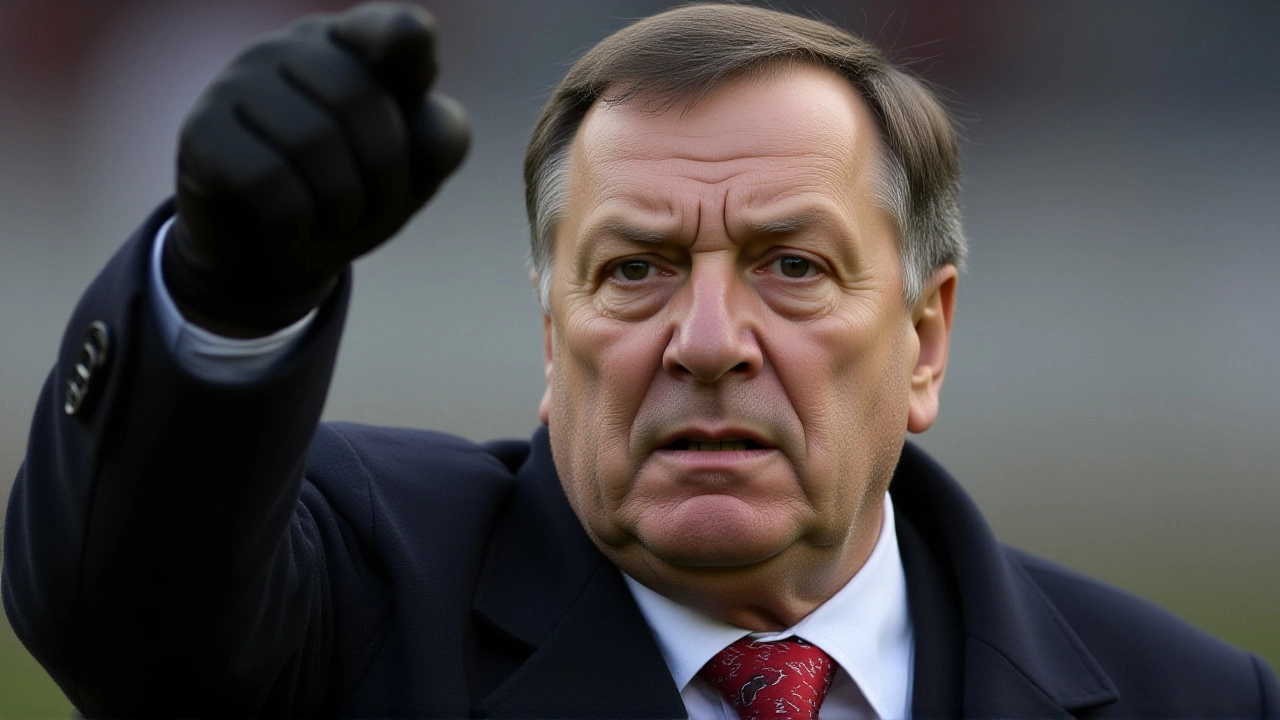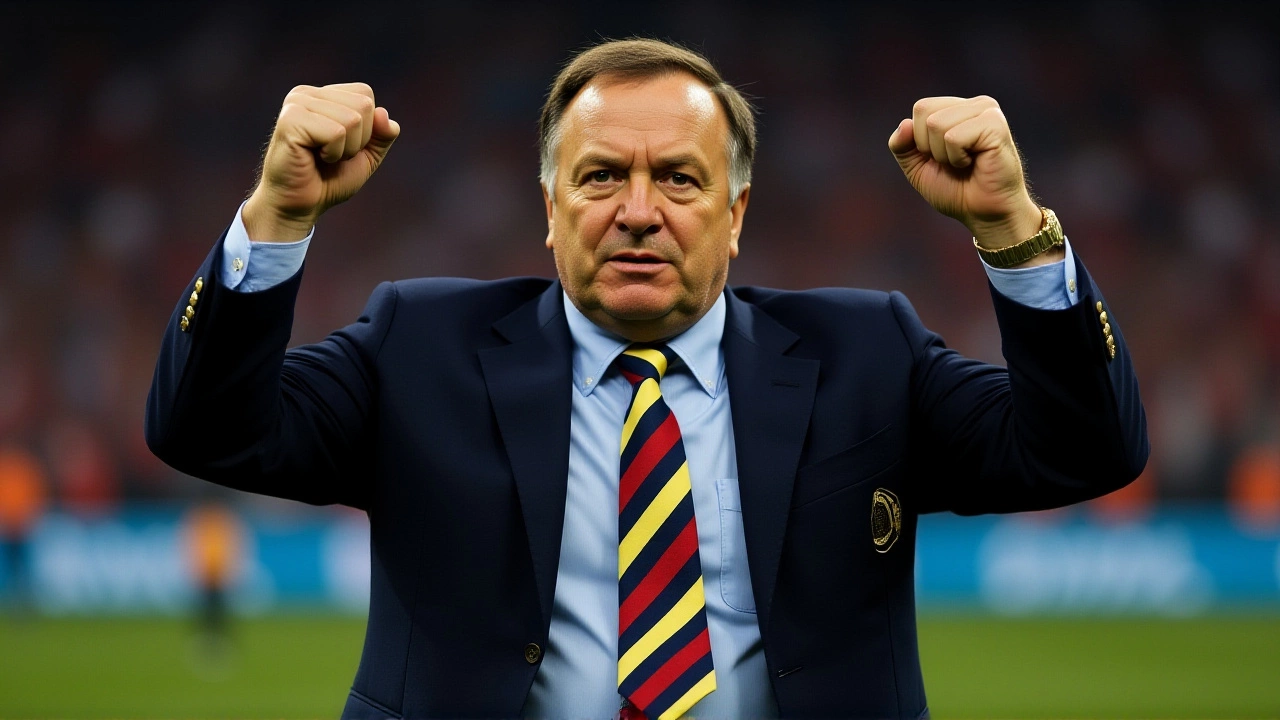At 78, Dick Advocaat isn’t just coaching — he’s rewriting history. On Tuesday night, his Curaçao national football team secured a 1-1 draw against Jamaica, enough to top their CONCACAF qualification group and clinch a spot in the 2026 FIFA World CupUnited States, Canada, and Mexico. The win makes Curaçao the smallest nation ever to qualify for a World Cup — population under 160,000 — and locks Advocaat into the record books as the oldest manager to ever lead a team to the tournament, surpassing Germany’s Otto Rehhagel, who was 71 years and 317 days old when he guided Greece in 2010.
A Legacy Built on Contradictions
Advocaat’s career has always been a study in contrasts. A former Dutch defender known for his tactical discipline, he’s spent over 35 years managing across continents — from the glitz of PSV Eindhoven, where he won the European Cup in 1988, to the chaos of Iraq’s national team in 2021. But it’s his time at Rangers Football Club that still stings for some and inspires others. Appointed in February 1998 as Walter Smith’s successor, Advocaat became the club’s first foreign manager in its 125-year history. The move shocked Scottish football. Rangers had been a British-managed fortress. He inherited a team reeling from its first trophyless season in 12 years — a collapse after seven straight league titles.
Advocaat didn’t tiptoe. He cleared house. Ally McCoist, Ian Durrant, Andy Goram, Stuart McCall — all gone. In their place, he brought in Dutch talents like Giovanni van Bronckhorst and Arthur Numan, and the explosive Ukrainian winger Andrei Kanchelskis. By his third season, he’d spent a club-record £12 million on Norwegian striker Tore André Flo. The spending was bold. The results? Mixed.
The Fall in Glasgow
By December 2001, Rangers were in freefall. Celtic, under Martin O’Neill, had surged ahead, winning the domestic treble. Advocaat’s side, despite the big-name signings, looked sluggish. In a press conference that still echoes through Scottish football circles, he called some of his players "fat-necks." The phrase wasn’t just harsh — it was revealing. He wasn’t just frustrated with tactics; he was angry at complacency.
His final match was a 1-1 draw against Hibernian at Easter Road on December 12, 2001. Celtic led the league by 12 points. He resigned the next day. He stayed on briefly as general manager, but the damage was done. When Rangers entered administration in 2012, critics pointed to his spending as a root cause. Advocaat, ever the pragmatist, stood by his decisions: "I did not think the club would go bankrupt."

The Comeback Nobody Saw Coming
After Rangers, Advocaat returned to the Netherlands national team — his third stint — then coached South Korea, Belgium, Russia, Serbia, and the UAE. He was 74 when he took over Curaçao in 2022. The island’s football infrastructure? Underfunded. The squad? Mostly semi-pros who play in Europe’s lower leagues or local leagues. ESPN called his achievement here "arguably his greatest against-all-odds glory." And they’re right.
Curaçao’s qualification wasn’t about flashy tactics or star power. It was grit. It was discipline. It was Advocaat, at 78, sitting in the dugout with a clipboard, barking instructions in Dutch, English, and Papiamento, turning a team of part-timers into World Cup contenders. The draw against Jamaica? It wasn’t pretty. But it was enough. And in football, that’s often all you need.
Why This Matters Beyond the Record
Advocaat’s story isn’t just about age. It’s about legacy. It’s about proving that experience isn’t a liability — it’s a weapon. While younger managers chase analytics and data-driven lineups, Advocaat relies on instinct, decades of reading the game, and an unshakable belief in structure. He’s managed in freezing Dutch winters, scorching Middle Eastern summers, and now the humid pitches of the Caribbean. He’s seen it all.
His presence at the 2026 World Cup will be more than symbolic. It’ll be a quiet rebellion against the notion that coaching is a young man’s game. When the opening whistle blows in June 2026, Advocaat will be standing on the touchline — older than most of the players he’s facing, and somehow, more alive than anyone else.

What’s Next?
Advocaat has said nothing about retirement. If Curaçao can get past the group stage — a long shot, but not impossible — he’ll likely stay on. There’s talk he might take on a technical advisor role with the Dutch FA after the tournament. But for now, his focus is clear: one match at a time. The World Cup is his stage. And at 78, he’s just getting started.
Frequently Asked Questions
How did Curaçao qualify for the 2026 World Cup despite being the smallest nation ever to do so?
Curaçao finished top of their CONCACAF qualifying group after a 1-1 draw with Jamaica on March 26, 2024, securing six points from their final three matches. Their qualification was built on a disciplined defensive system and timely goals, with key performances from players like Jair Tjon En Fa and Kervens Belfort. With a population of just 158,000, they’re the smallest nation — by far — to reach the World Cup, surpassing previous record-holders like Iceland (340,000) and Trinidad and Tobago (1.4 million).
What record is Dick Advocaat breaking, and who held it before?
Advocaat will become the oldest manager to lead a team at a World Cup finals, surpassing Germany’s Otto Rehhagel, who was 71 years and 317 days old when Greece played their final match in 2010. Advocaat turns 79 in February 2026, just months before the tournament begins in June. No other manager in history has coached at the World Cup past age 75.
Why was Dick Advocaat’s time at Rangers controversial?
Advocaat’s Rangers tenure was marked by heavy spending — including a club-record £12 million on Tore André Flo — but a lack of trophies. After Celtic won the domestic treble in 2000–01, Advocaat publicly criticized players as "fat-necks," sparking outrage. His resignation in December 2001 came amid a 12-point gap to Celtic. Years later, Rangers’ financial collapse in 2012 led some to blame his transfer policy, though Advocaat maintained he acted within the club’s budget at the time.
What makes Advocaat’s success with Curaçao so remarkable?
Curaçao has no professional league, minimal funding, and most players work other jobs. Advocaat, with no budget for full-time staff, relied on video analysis, WhatsApp communication, and weekend training camps. He recruited diaspora players from the Netherlands and the U.S. with Curaçao heritage. His ability to unify a fragmented squad into a cohesive unit — without elite facilities or salaries — is why experts call it his most impressive managerial feat.
Has any other manager had such a long international career?
No. Advocaat has managed seven different national teams across four decades — the Netherlands (1992–98, 2002–04, 2010–12), South Korea (2005–07), Belgium (2010), Russia (2016–18), UAE (2002–04), Iraq (2021), and now Curaçao (2022–present). Only Brazil’s Mário Zagallo managed at five World Cups, but never across so many different nations. Advocaat’s longevity and adaptability across cultures and systems is unprecedented.
What’s the significance of Curaçao’s World Cup appearance for Caribbean football?
Curaçao’s qualification breaks the mold of Caribbean football being dominated by larger nations like Jamaica, Trinidad and Tobago, or Haiti. It proves that with smart management and cultural cohesion, even the smallest islands can compete. The win has already sparked youth investment programs across the Dutch Caribbean, with Curaçao’s football federation reporting a 40% spike in registrations since March 2024. It’s not just a dream — it’s a blueprint.
